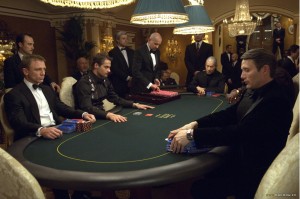 Today’s case is from Germany, as reported by Artnet:
Today’s case is from Germany, as reported by Artnet:
Triple Elvis (1963) and Four Marlons (1966) hold a combined estimated value of €100 million ($128 million) and are being sold by the Westspiel casino conglomerate …
[T]he casino chain Westspiel is in fact a subsidiary of the State Bank of North Rhine-Westphalia. This prompted German culture minister Monika Grütters of the center-right CDU party to accuse North Rhine-Westphalia’s center-left-led regional government of selling the artworks in order consolidate state debts. She told FAZ: “Artworks are not objects of speculation for the public sector. To sell them in order to refill state coffers would be an indecent systemic failure. Art and culture entrusted to us must be protected on all levels.”
According to DW, the minister president of North Rhine-Westphalia Hannelore Kraft of the center-left SPD made it clear that she cannot stop the sale of Triple Elvis (1963) and Four Marlons (1966) because they are not items of national cultural importance as defined by the Culture Protection Act. In addition she said that the purchase of the paintings by the state was “currently not an option.” However Kraft assured the regional government that the money from the sale of the paintings would not be used to to pay off state debts. “This taboo will not happen,” she said.
So all sides seem to agree that the casino’s selling the Warhol works to reduce public debt would be an ‘indecent systemic failure’ and a ‘taboo’. This blogger has always found state investment in casinos to represent an indecent systemic failure of public finance, but that’s a topic for another day. I wish articles like this would ask the politicians their thoughts on legitimate ways to reduce public debt, so as to show that the art world is not completely divorced from its economic and political context, but that’s a topic for another day, too.
The kicker:
[A]s the casino group is a legally independent company, the government has no influence over the sale of the works. Westspiel has indicated that it intends to use the proceeds to modernize its casinos.
So that’s ok then?

A important fact is not mentioned in your post: The link also says, “In a letter in response to the museum directors Kraft said Westspiel had acquired the paintings with their own resources. And as the casino group is a legally independent company, the government has no influence over the sale of the works. Westspiel has indicated that it intends to use the proceeds to modernize it’s casinos.”
If Westspiel used its own funds (as opposed to government funds) I don’t see any issue at all here. The public did not pay for the art and the public has no stake in it. (And the government doesn’t claim it has an interest.) The entrepreneur Steve Wynn owns casinos in Las Vegas, where he displayed his valuable art collection, and no one argues that he somehow gave up his rights by putting them on display.
The rules about deaccessioning for American museums are fairly clear: you can’t sell the art in your trust to pay for anything other than acquiring more art. (Even that can be abused.) But the casino is not an art museum and so I don’t see how it can be held accountable as one.
Obviously Germany will have different laws and guidelines in this area, but if I am missing the point, please do correct me.